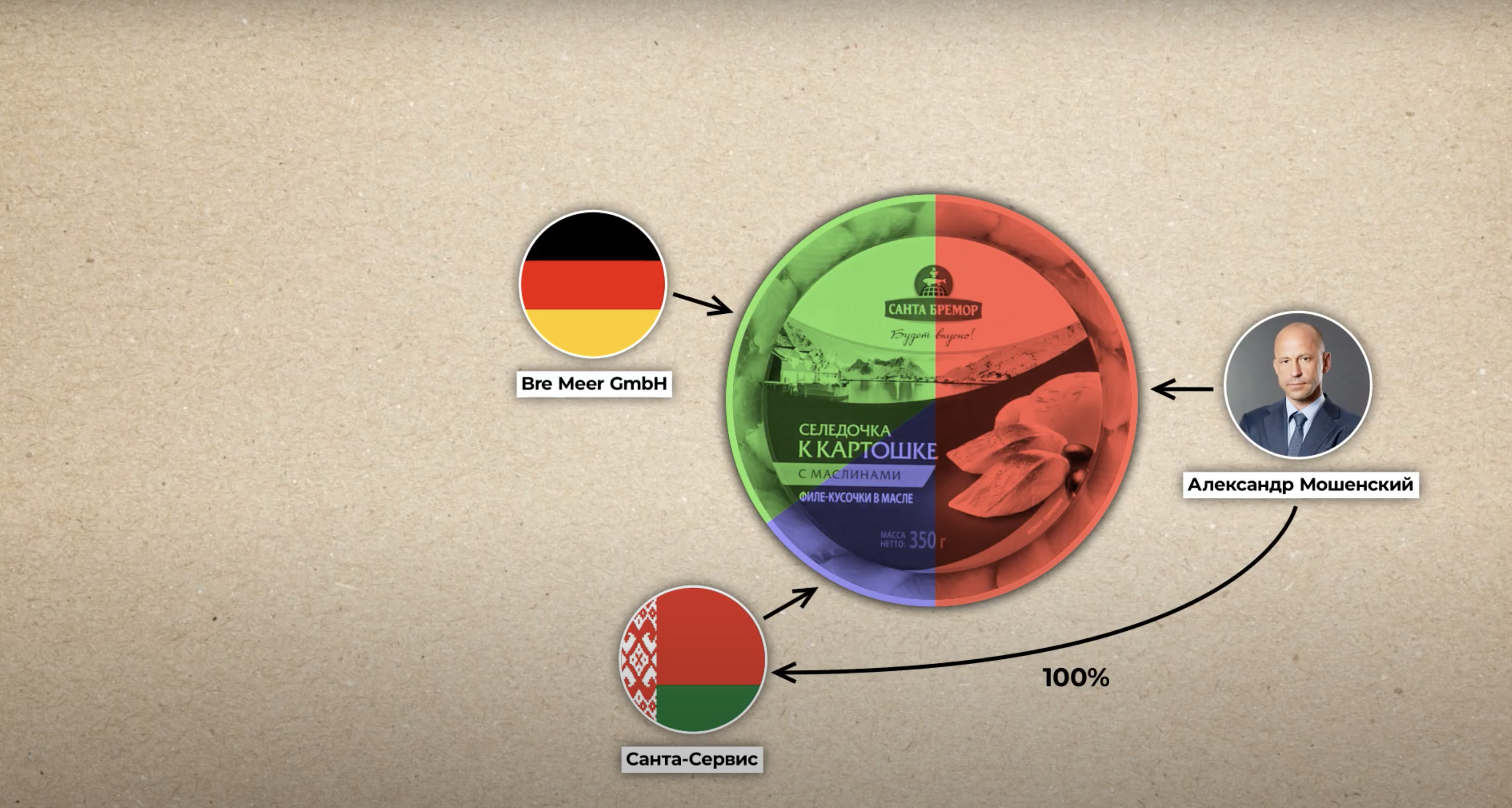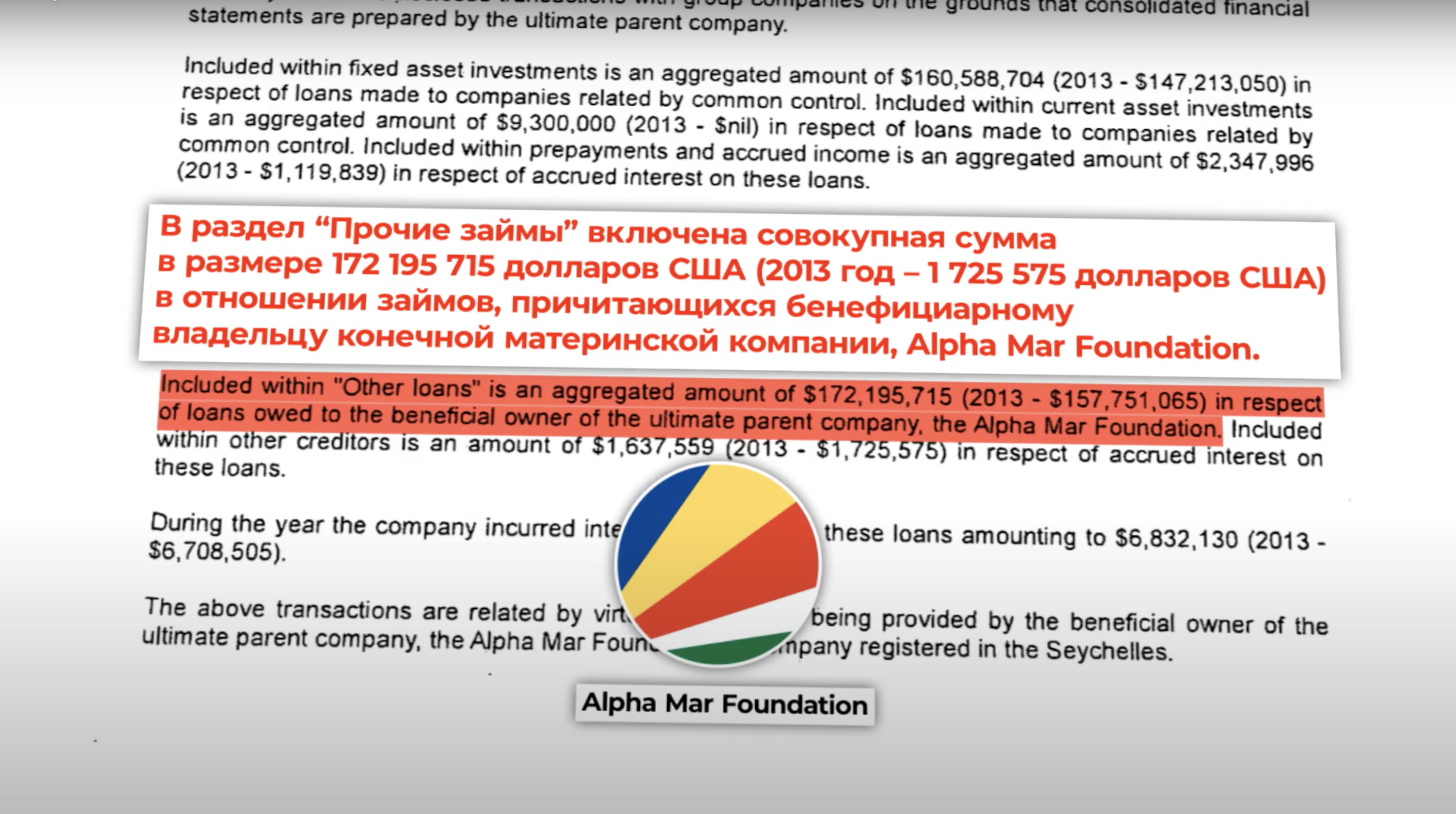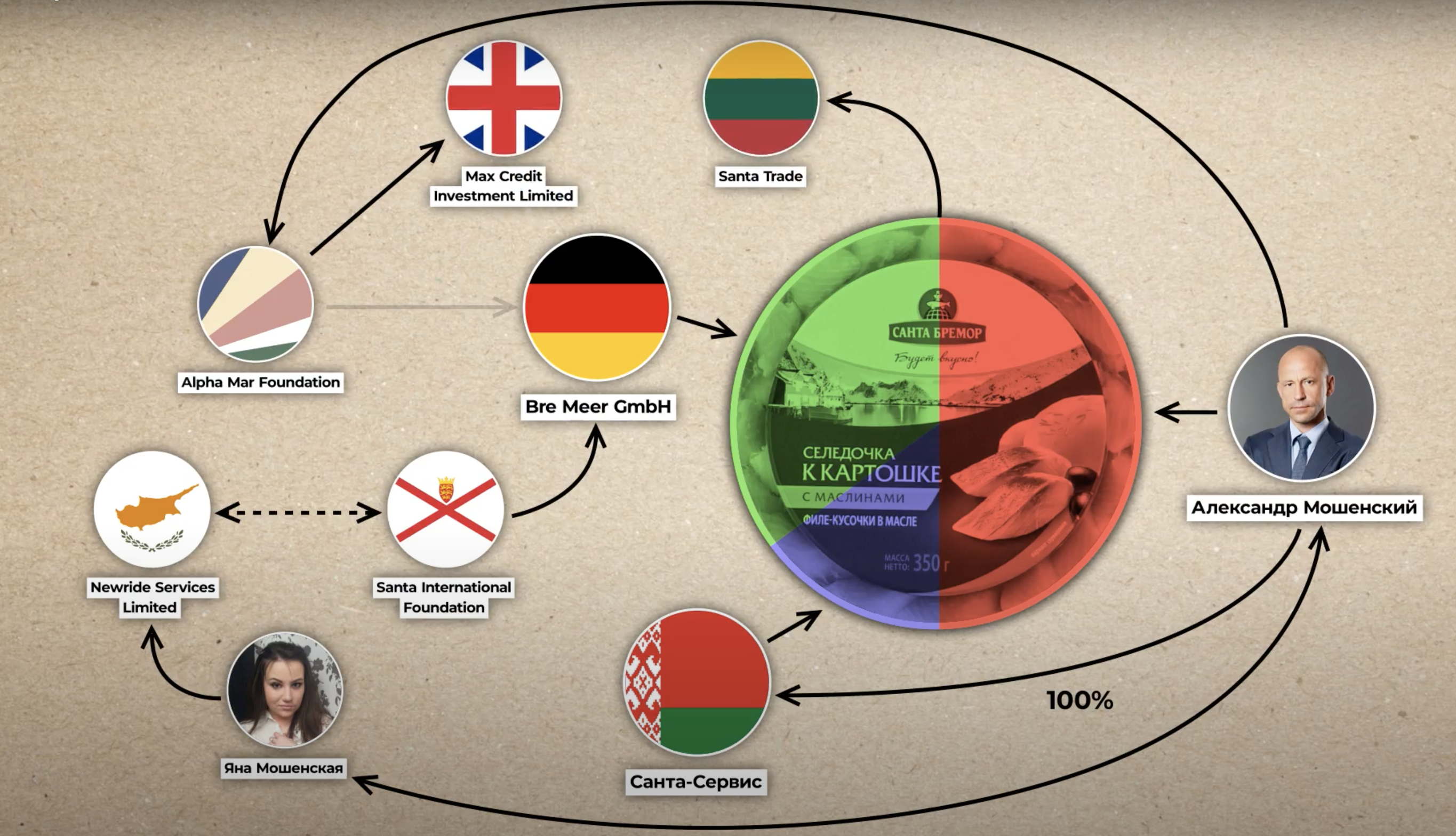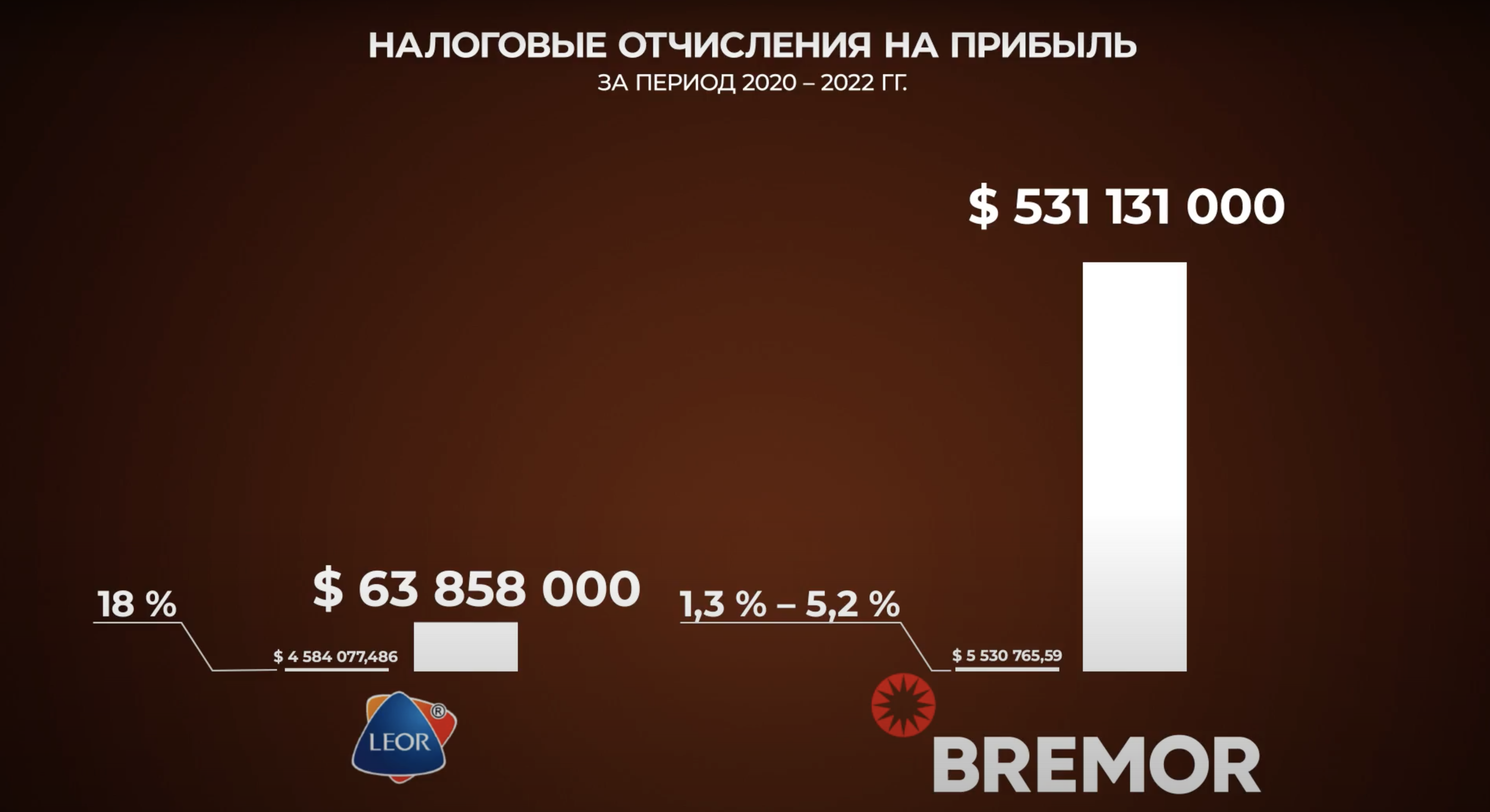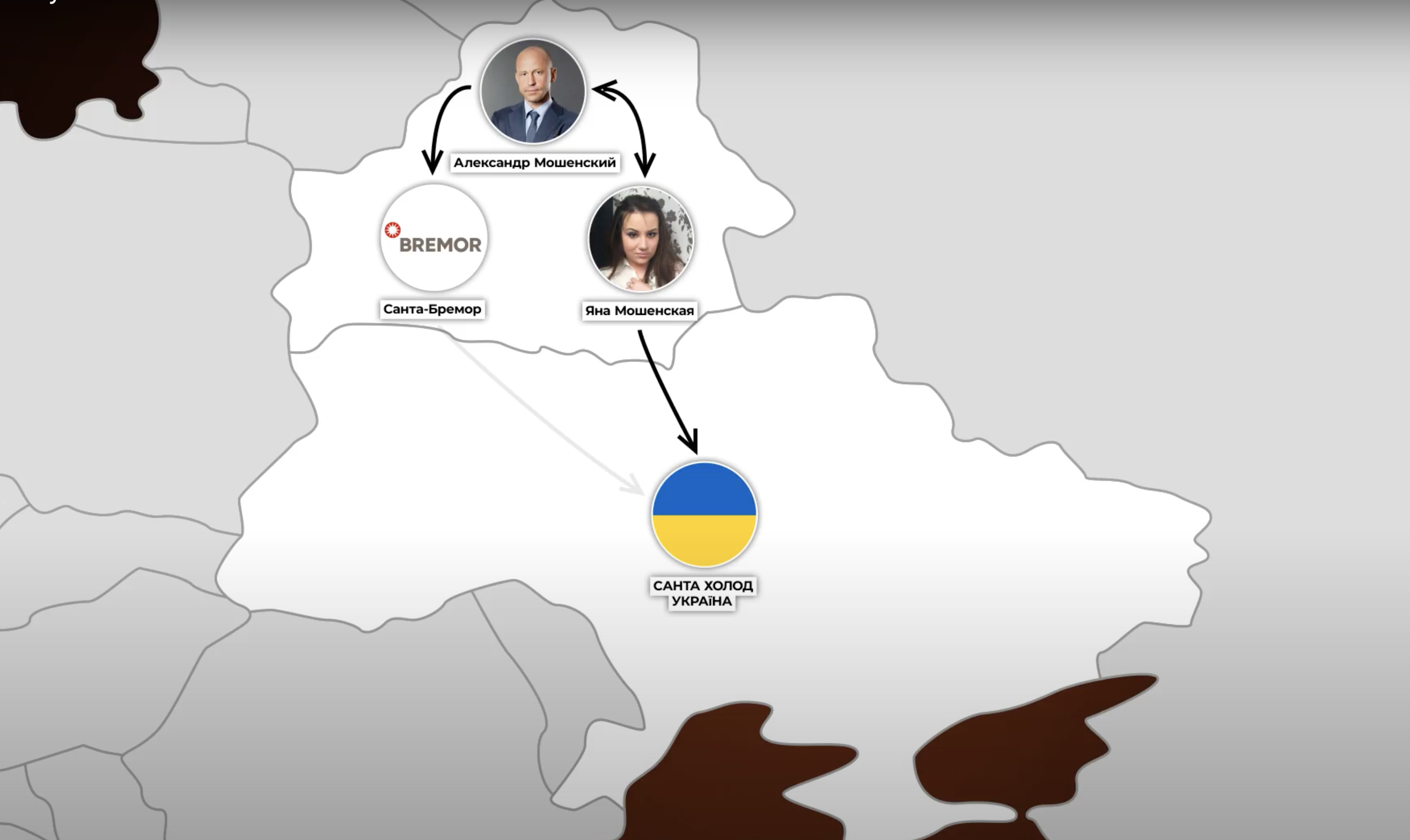This investigation was produced in collaboration with LRT (Lithuania) and Heimildin (Iceland) with the support of CyberPartisans and OCCRP.
June 2023, Strasbourg, France The Parliamentary Assembly of the Council of Europe (PACE) is meeting for the second day of its summer plenary session. Icelandic deputy Thórhildur Sunna Ævarsdóttir speaks. She is talking about Belarus, or to be more precise, about an outstanding businessman in the modern history of Belarus. It is not a tribute to his merits. On the contrary, the MP believes this Belarusian businessman should have long been on the EU sanctions list:
"I'm ashamed of reports that Iceland has used its diplomatic power within the European Union to keep him off sanctions lists. I hope that we will soon become a state that shows full solidarity with the people of Belarus, regardless of whether or not that in some way or other impacts our economic interests".
The businessman is Alexander Mashenski (Moshenskiy, Moshensky), the "fish king" of Belarus. His main assets are Santa Bremor and Savushkin Produkt. For nearly two decades, Mashenski has maintained diplomatic and business relations with Iceland. In 2006, he even became the country's honorary consul in Belarus.
These ties may have saved him from European sanctions, our colleagues at the Heimildin newspaper have found out. According to the newspaper, Icelandic Foreign Ministry representatives made over 30 calls to the EU to lobby on Mashenski's behalf. He has indeed been targeted due to connections with the Belarusian authorities: he was on a government plane with Aleksandr Lukashenko, supported him in the elections, and even received a medal from Lukashenko.
The fact that Mashenski did not appear to be a close associate of Lukashenko was believed to be the reason the sanctions bypassed him. But is it really so?
An offshore octopus
Santa Bremor, a company known for its fish products, was established in 1998. It was founded by Mikhail Mashenski, former head of the design office of the Brest Electromechanical Plant. He died in 2000 and the company was taken over by his son Alexander Mashenski.
Santa Bremor promotes itself as a Belarusian-German company, which implies foreign investment. At first glance, this seems to be the case. According to official data, Mashenski controls 50% directly and another 15% through the Belarusian company Santa Servis, which he also controls. The remaining 35% of Santa Bremor is held by the German company Bre Meer GmbH. Thanks to our partners at OCCRP, we have learned this company has its roots in offshore jurisdictions. [*][*][*][*]
From 2014 to 2018, Bre Meer GmbH was owned by the Alpha Mar Foundation, registered in the Seychelles. This offshore has a bad reputation and virtually no taxes are paid. The beneficiary of Alpha Mar Foundation at the time was Mashenski, meaning Bre Meer GmbH was controlled by him, not by a German partner. This became known from the reports of the Cypriot company Alpha Mar Limited, which was controlled by the Seychelles offshore. [*][*]
Bre Meer GmbH had a change of ownership in 2018. The Alpha Mar Foundation was replaced by the Santa International Foundation, based on the British island of Jersey. [*]
This company also considered an offshore. It does not disclose the owners of companies registered there. However, we found links between Santa International Foundation and Newride Services Limited. [*]
A Cypriot company one owned by Mashenski's daughter, Yana. [*][*][*]
As we can see, under the guise of the Belarusian-German company Santa Bremor, there is an octopus of offshore companies whose connections lead back to the Mashenski family.
Auditor Abdulwahed Alobaly explains why businessmen set up companies offshore:
"Offshore companies registered in tax haven countries can sometimes be used for illegitimate purposes, such as tax evasion, money laundering, or other financial crimes. These countries often provide a favorable environment for such activities due to several factors: secrecy and confidentiality, low or zero taxes, complex corporate structures, weak regulation and enforcement, banking secrecy."
We are not suggesting Mashenski is involved in financial crime. However, having companies registered in offshore jurisdictions is worth investigating.
Credit catch
BIC looked at how Santa Bremor operates. The company buys raw fish from Norway, Iceland, South America and Asia. The cargo is transported through the port of Klaipeda, Lithuania. To do this, in 2016 Santa Bremor set up a subsidiary in Lithuania, Santa Trade. This company imports fish to Lithuania and then resells it to the parent Belarusian company, Santa Bremor. But Santa Trade only employs three people, according to company reports we obtained thanks to Lithuanian colleagues from LRT. [*][*][*]
In 2016, "to meet urgent payments and working capital requirements", Santa Trade took out a loan from Max Credit Investment Limited in the UK. The original loan terms were over €28 million at 2% per annum. In 2017, the loan was increased to almost €38 million, but the interest rate remained the same. This is well below market rates in the UK and EU, which are typically above 4% per annum, says auditor Abdulwahed Alobaly. [*]
We investigated Max Credit Investment Limited, the generous lender to Santa Trade.
Max Credit Investment Limited reports that its parent company in 2016 and 2017 was indeed that Seychelles-based company Alpha Mar Foundation. But the links between the two companies had been established even earlier. [*][*]
Documents show that in 2014 Max Credit Investment Limited received over $170 million in loans from the Alpha Mar Foundation, whose beneficial owner at the time was Mashenski. It appears one businessman's company issued loans to another, and at a lower rate.
"Charging excessively high or low interest rates on intercompany loans could be an attempt to manipulate the taxable income of the companies involved, leading to tax avoidance or evasion," the auditor Alobaly told BIC.
On the Baltic coast
In Lithuania, where Santa Trade is registered, loans from a related company are legal, but the amount of the loan cannot exceed four times the company's equity. Such a law was enacted to prevent companies from underestimating their tax burden. We checked Santa Trade's compliance by examining the company's accounts. The company's equity in 2016, when it received the loan, was negative — around €1 million. This is 25 times less than the loan amount.
In 2020, Max Credit Investment changed its owner, and on paper the company lost contact with Mashenski. The new beneficiary of the British firm is Icelandic asset manager Karl Konradsson, who has been working with the firm for 15 years. According to the BIC, Mashenski knows Konradsson personally.
In 2022, Santa Trade returned the loan to Max Credit Investment. For five years, it paid about €3.6 million percent on this loan.
Since its inception, Santa Trade has been operating with negative equity and should go bankrupt. It is kept afloat by a loan from a British firm.
The Lithuanian tax authorities explained that negative equity can occur for various reasons, but does not in itself mean that the company is tax evader. However, If a company has a tax loss for several years, inspectors may have doubts about whether it was created for economic gain.
“There are situations when it is established that a company artificially incurs only tax losses for a continuous period. They are unreasonably deductible under income tax law. It also happens that the activities of the company contradict economic logic. For example, a firm is artificially included in a group of companies. This may result in additional income tax charges,” explained Rūta Asadauskaitė, the Head of Communications of Tax Administration of Lithuania.
Thus, Mashenski owns the fishing business in Belarus, partly directly, and partly through offshore companies. Norwegian and Icelandic fish enter Belarus through a company established by Santa Bremor in Lithuania, which exists on loans from the same Mashenski’s offshore companies. Transactions between firms are like a credit carousel with signs of tax understatement. The businessman carries out these manipulations abroad. To understand how this affects the work of Mashenski in Belarus, it’s necessary to look at his personality first.
In league with authorities
Mashenski is one of the ten most successful and influential businessmen in Belarus. Another of his properties is Savushkin Produkt, which deals in dairy products.
It can be difficult to run such large businesses in a country where many areas of the economy are dominated by the state. Examples of other big businessmen show that political loyalty is sometimes necessary to succeed. And Mashenski has shown it. He was Lukashenko's confidant in the 2010 elections and supported his policies.
"I believe that it makes more sense for us to go through ongoing changes with the current government than to engage in some revolutionary affairs. I am interested in stability," said Mashenski in November 2010.
Two and a half years after that election, Lukashenko awarded Mashenski with the Order of Merit for Services to the Fatherland. At the same time, on Lukashenko's personal orders, Mashenski’s Savushkin Produkt bought up two state enterprises sold without an auction: Baranavichy Dairy Factory and Biaroza Cheese Factory. The latter, according to some estimates, may have been underpriced.
BIC asked Mashenski to comment on these transactions. He wrote that since 2010, shares in state-owned agricultural processing companies in Belarus can only be bought with Lukashenko's approval. The terms of the sale must first be approved by the Regional Executive Committee overseeing production.
"Contrary to [BIC's] suspicions of a preferential purchase price, the company (Savushkin Produkt) had to pay four times more for the state stake than the shares were worth on the stock exchange. Two main reasons influenced the purchase decision: an acceptable average price for the entire block of shares and our expectation of improving the efficiency of enterprises through synergy and specialisation of production," wrote Mashenski.
Taking to Lukashenko's entourage like a duck to water
The relationship between Mashenski and Lukashenko did not end after the 2010 election. BIC investigators found some interesting airplane flights taken by Mashenski.
In 2016, a government Boeing 767 flew from Minsk to Doha. Lukashenko was on an official visit, first to Qatar and then to the United Arab Emirates. Only Lukashenko's closest associates were on board: his aide Mikalai Korbut, personal security guard Mikalai Latyshonak, press secretary Natallia Eismant, personal doctor Sviatlana Kanashenka, and two sons – Nikolai and Viktor. They were accompanied by several businessmen, including Alexander Shackutin, Sergei Teterin and Mashenski. [*]
We also found two flights on which Alexander Mashenski accompanied Dmitry Lukashenko, another son of the president, and his family. They flew together from Istanbul to Minsk in March 2013 and from Minsk to Pisa in August 2019. [*][*]
Mashenski's links with Lukashenko's family do not end there. He is a member of the Central Council of the Presidential Sports Club, headed by Dmitry Lukashenko.
Many Belarusian businessmen have paid a steep price for their close ties to Lukashenko and his family. For example, Alexander Shackutin or Sergei Teterin who, like Mashenski, flew to Doha with Lukashenko, fell under EU sanctions. They were blacklisted not only because of their links with current Belarusian authorities, but also because they had received personal benefits for their businesses from them. Mashenski has not been sanctioned.
Rivers of sweeteners
At the end of the 1990s, Belarus began creating free economic zones (FEZ). The goal was to boost the economy by developing high-tech, export-oriented production. The Santa Bremor company has been located in the Brest FEZ since its establishment. The company was producing a truly new product for the country – vacuum-packed herring fillets. Santa Bremor is still a resident of the Brest free economic zone. This allows the company to receive various benefits from the state. For example, it does not pay income tax if it sells its products for export.
Mashenski admitted to journalists that he owed his success to state support among other things:
"As for Santa Bremor, if we were outside the FEZ, the company would have grown more slowly. The privileges granted to us increase our competitiveness in Russia, Ukraine and countries where customs and tax legislation is different from that of Belarus."
Santa Bremor has grown over the years. It now has six workshops and employs around 5,000 people. Mashenski's competitors are smaller and are not located in any FEZ. But their ontributions to the Belarusian budget are comparable to that of the state-subsidised Santa Bremor.
For example, the Navahrudak-based company Leor Plastik, which also produces herring preserves, has paid more than $4.5 million in profit tax to the treasury over the past three years. Over the same period, Santa Bremor paid only $946,000 more than that, even though its pre-tax profit was eight times higher than that of Leor Plastik. Mashenski explained in his letter to BIC:
"The amount of income tax payable is not only determined by the tax rate itself, but also by several other factors. The most important of these is investment. The tax code encourages investment in the development of production through an investment deduction for taxpayers. In addition, the amount of profit tax payable is reduced by sponsoring healthcare organisations. In the period you are inquiring about (the last three years), the companies of the Santa Group have donated around $6 million to charity."
We calculate that Santa Bremor has saved almost $32 million in the last three years alone, thanks to this method of calculating income tax. This money could be used to build a new fish factory, a well-equipped clinic for 800 visitors, and a school for 720 students. Santa Bremor has been using these tax sweeteners for 25 years.
Bringing it out into the open
Mashenski has repeatedly attracted the attention of European regulators. He could have been blacklisted by the European Union immediately after the 2020 elections, which were accompanied by mass protests by Belarusians and their violent suppression by the authorities. How Mashenski managed to avoid Western sanctions on himself and his assets he explained in a – not very detailed – commentary for Nasha Niva:
"I think those who make these lists have certain criteria for inclusion. Is it fair to ask whether Santa Bremor meets these criteria? Have we shot demonstrators? Are we a 'moneybag' – in the authors' terminology? I don't think so. I think they are not making decisions based on information about who is exporting how much fish, but on other criteria that Santa Bremor does not meet."
Our investigation showed that Mashenski's business is not as clean as he tries to make it out to be: BIC found companies in offshore zones, possible tax manipulation in Lithuania, links to Lukashenko and his family, the purchase of state companies without competitive bidding, and millions of dollars in benefits that competitors do not have.
Aware of the precariousness of his position, Mashenski has already taken steps to protect his business should he find himself on the sanctions list. The Lithuanian company Santa Trade, which exists thanks to a loan, changed ownership a month and a half after the start of the war in Ukraine. Santa Trade is now owned not by Santa Bremor but by Newride Services Limited of Cyprus. OCCRP informs us this company is owned by the businessman's daughter, Yana Mashenskaya.
According to records, Yana Mashenskaya lives in London. She studied economics there. Her Cypriot company owns another company in Spain, which has a villa near Barcelona on its register. Bought for almost €3 million, the three-story building is about two hundred metres from the sea. [*][*][*]
But her interests extend beyond Lithuania and Spain. After the war began, Mashenski's companies in Ukraine were also transferred to her. They are now in limbo because Ukraine authorities have seized these properties based on the nationality of the owners.
Other businessmen close to Lukashenko have long been subject to EU sanctions. Mashenski has managed to avoid them with the help of Icelandic diplomats. Judging by the speech at the plenary session of the Parliamentary Assembly of the Council of Europe, there are already opponents of such measures among Icelandic diplomats.
BIC asked Mashenski to comment on his flights with Lukashenko, his management of offshore companies, his business in Lithuania, and the credit carousel with indications of underpayment of taxes. His reply:
"I will leave aside those of your questions that concern me and my family personally and those that aim to harm me and others. In this part, I can only state that all the companies in which I am involved were set up and operate following the law."
The sole responsibility for any content supported by the European Media and Information Fund lies with the author(s) and it may not necessarily reflect the positions of the EMIF and the Fund Partners, the Calouste Gulbenkian Foundation and the European University Institute.




